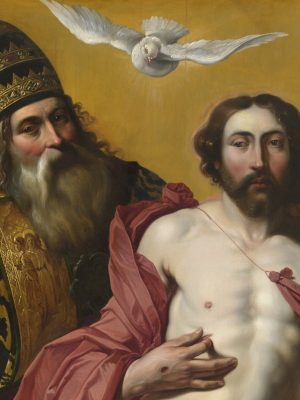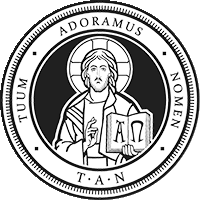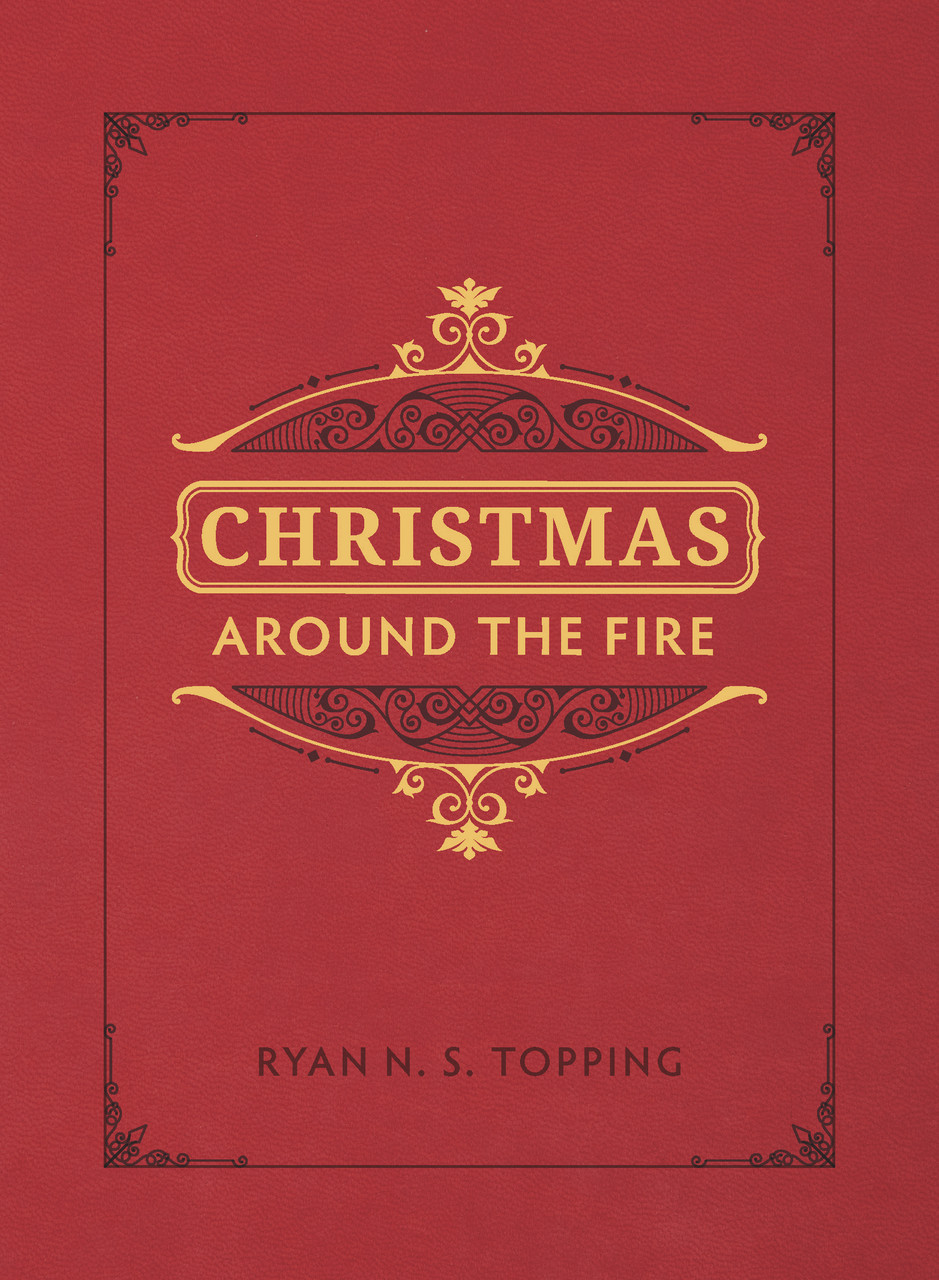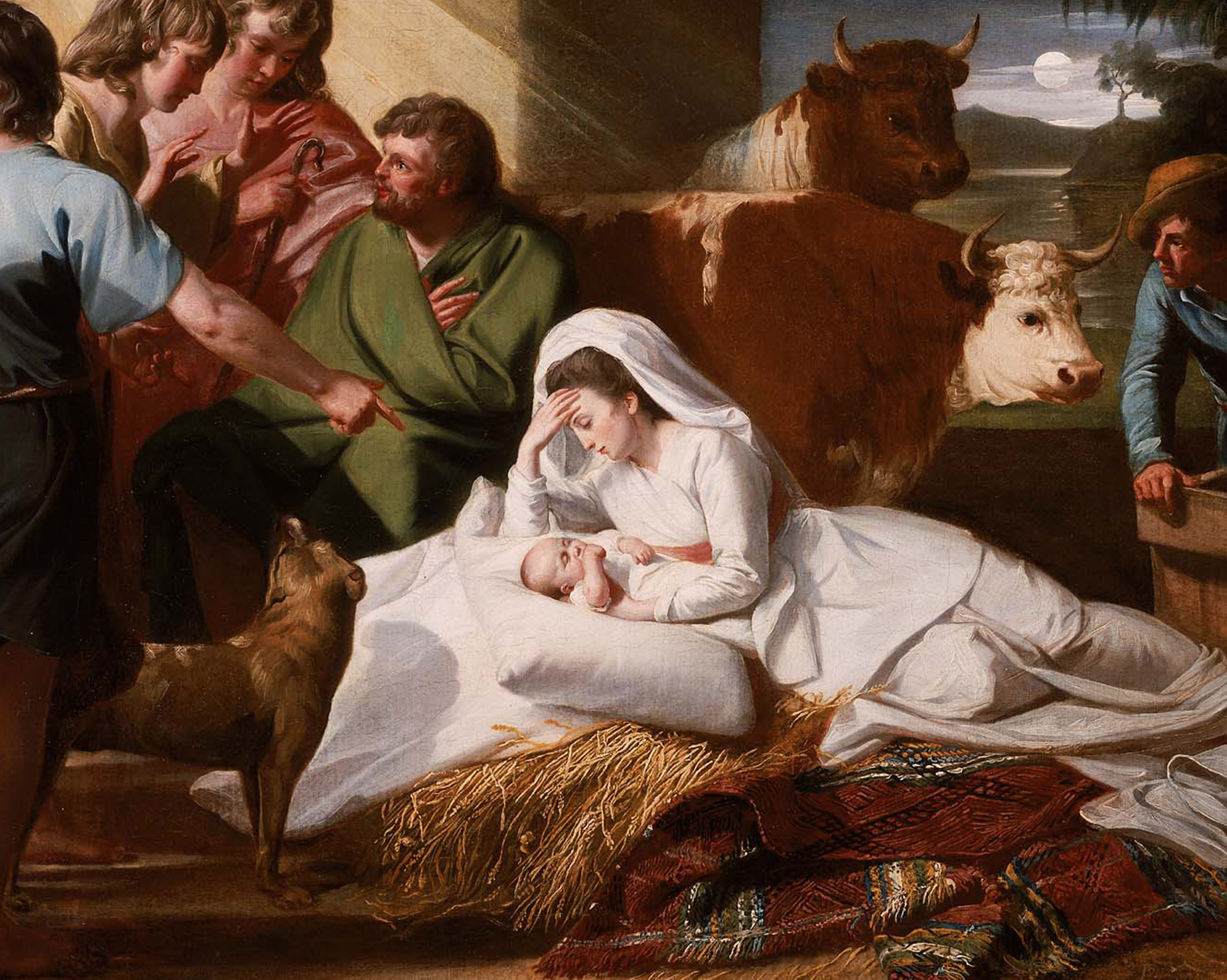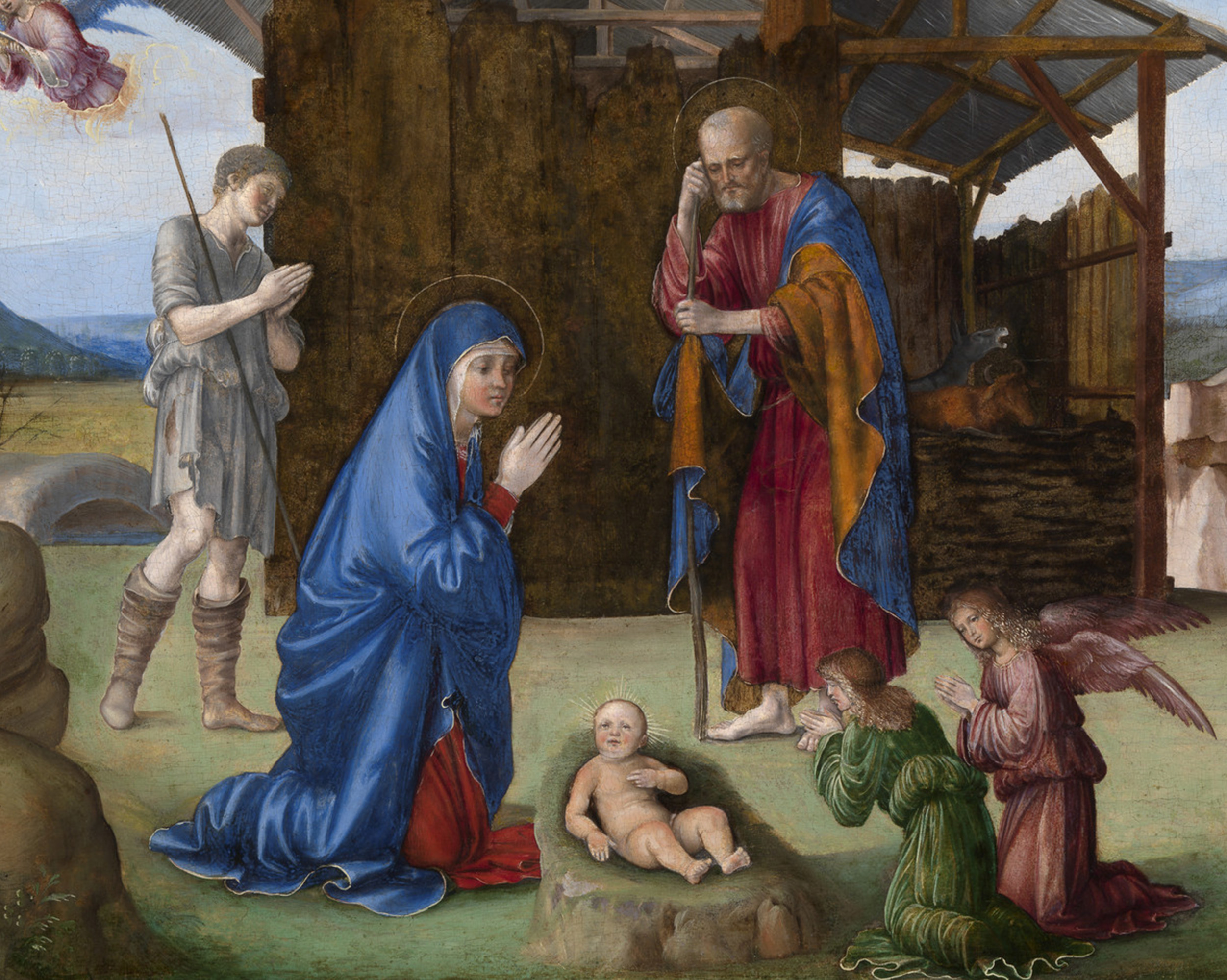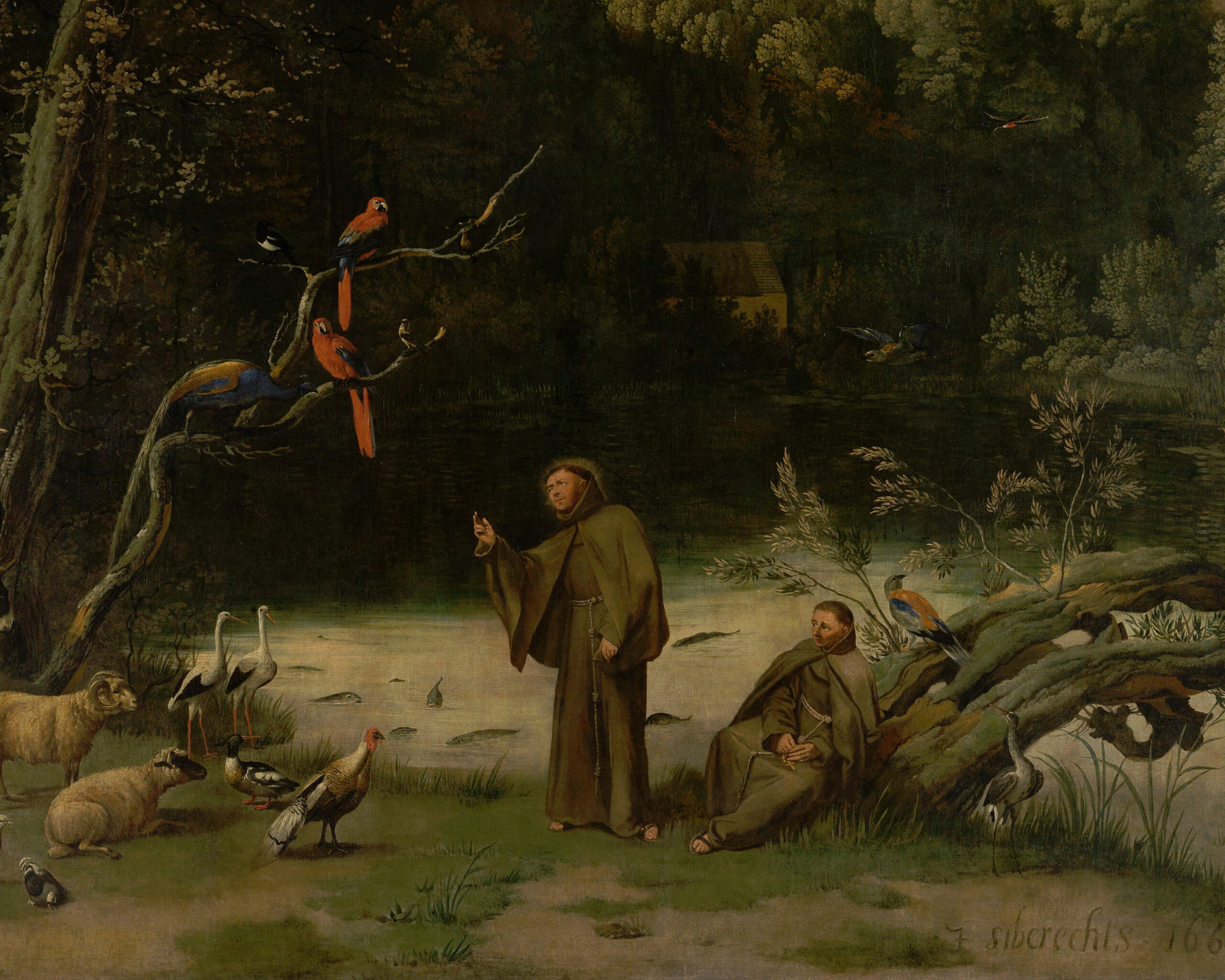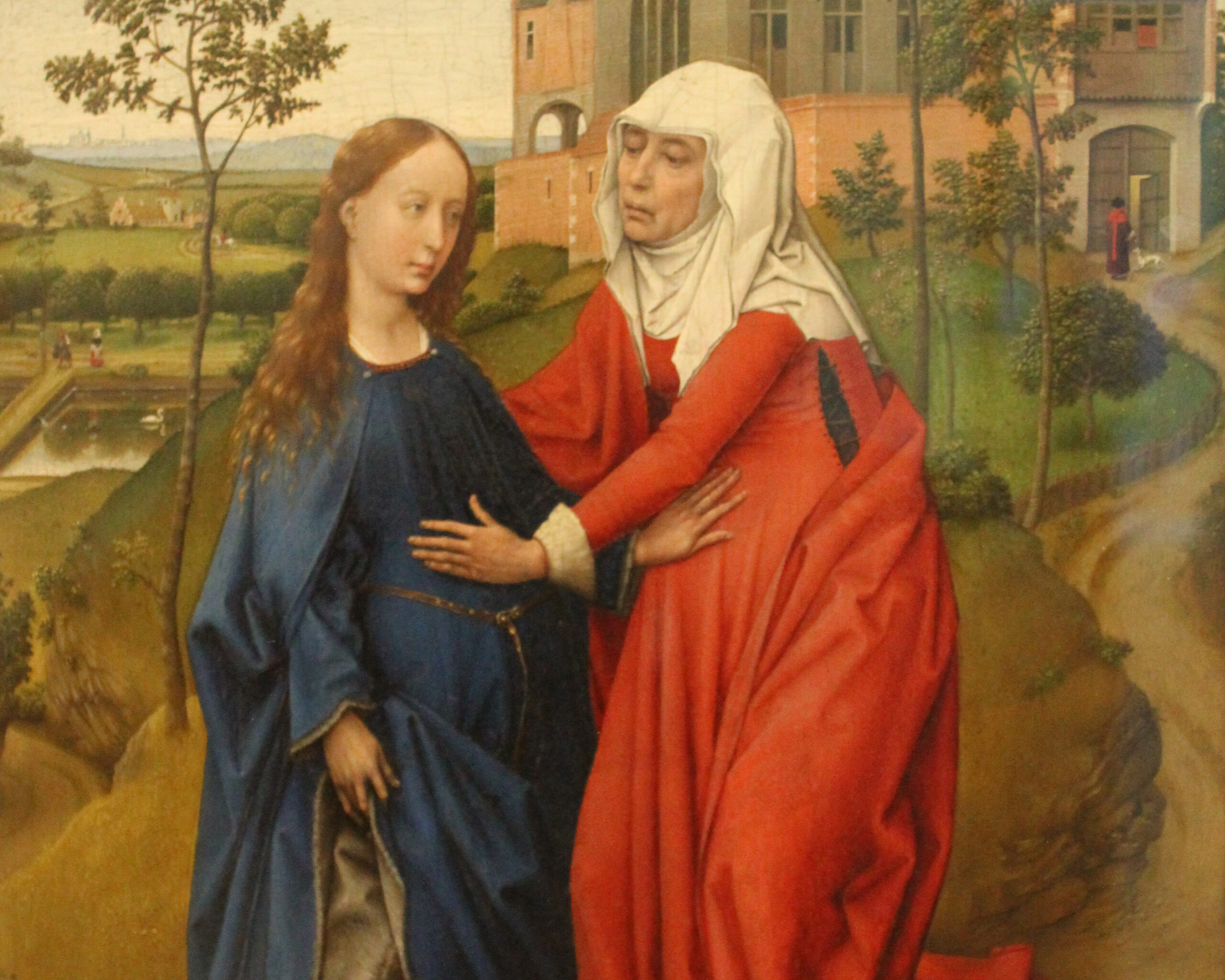Christmas Around the Fire invites us to gather our loved ones for the greatest Christmas stories ever written. Read this excerpt for Saint Augustine’s most moving sermon for Advent and Christmas.
Today, the birthday of our Lord Jesus Christ has dawned in festive splendor for us. It is His birthday, the day on which the Eternal Day was born. And hence it is this day because from this day forward the length of the day increases. Our Lord had two nativities: one divine, the other, human; both marvelous; the one without a woman as mother, the other without a man as father.
Hence, the words of the Prophet Isaias may be applied to both generations: “Who shall declare his generation?” Who would worthily tell of a God generating His Son? Who would worthily relate the parturition of a virgin? The former generation took place without the limits of time; the latter, on a definite day in time. Both happened without human calculation, and both are viewed with intense admiration.
Consider that first generation: “In the beginning was the Word, and the Word was with God; and the Word was God.” Whose Word? That of the Father Himself. What Word? The Son Himself.
Never did the Father exist without the Son, yet He who was never without the Son generated that Son. He generated Him, yet the Son had no beginning, for there is no beginning for Him who was generated without beginning. Nevertheless, He is the Son and He was generated. Someone is going to say: “How was He generated if He had no beginning? If He was generated, He has a beginning; if he has no beginning, then, how was He generated?”
I do not know how this happened. Do you ask me, a mere man, how God was generated? I am troubled by your question, but I have recourse to the words of the Prophet: “Who shall declare his generation?”
Come with me to a consideration of that human generation; come with me to that in which He “emptied himself, taking the nature of a slave,” come, to see if we can comprehend it, to see if we can speak about it. For who would grasp the significance of: “Who though He was by nature God, did not consider being equal to God a thing to be clung to?” Who would understand that? Who would worthily ponder it? Whose mind would dare to investigate it? Whose tongue would have the temerity to utter a decision concerning it? Whose thought can encompass it?
Meanwhile, let us lay aside this problem as being too weighty for us. But, so that it would not be too weighty for us, He “emptied himself, taking the nature of a slave and being made like unto men.” “Where?” In the Virgin Mary. Then, let us say something if we have any power of utterance. The angel announces; the Virgin hears, believes, conceives, faith in her mind, Christ in her womb. A virgin has conceived; you are amazed; a virgin has brought forth a child; you are more amazed; after childbirth she has remained a virgin therefore “Who shall declare his generation?”
I am going to say something that will please you, my very dear brethren. There are three states of life pursued by the members of the Church of Christ: marriage, widowhood, and virginity.
Because those states, those different manifestations of purity, were destined to be found in the holy members of Christ, all three states of life gave witness to Christ.
In the first place, the conjugal state bore this witness, for, when the Virgin Mary conceived, Elizabeth, the wife of Zachary, having already conceived, bore in her womb the herald of this Judge. Holy Mary came to Elizabeth to greet her cousin. Thereupon, the infant in Elizabeth’s womb leaped for joy. He exulted; she prophesied. Here you have conjugal purity bearing witness to Christ.
Where did the state of widowhood bear such witness? In the case of Anna. When the Gospel was read recently, you heard that Anna was a holy widow with prophetic powers who, having lived seven of her eighty-four years with her husband, was constantly in the Temple, worshiping in prayer both night and day. She, a widow, recognized Christ, She saw a tiny babe; she recognized the great God and she bore Him witness. You have, then, in her an illustration of the state of widowhood.
In Mary herself we have an illustration of the virginal state. Let each one choose for himself which of these three states he will. Whoever has elected to live outside these states does not make provision for his inclusion in the members of Christ. Let not those women who are married say: “We do not belong to Christ, for holy women have had husbands. Let not those women who are virgins boast; let them, rather, humble themselves in all things in proportion to their greatness.”
You have all the instances of sanctification set before your eyes. Let no one turn aside from these bounds. Let no one turn away from his wife; it is better to be without a wife. If you seek conjugal chastity, you have Susanna; if chastity of widowhood, you have Anna; if virginity, you have Mary.
The Lord Jesus wished to become man for our sake. Wisdom lies upon this earth; let not His mercy become worthless. “In the beginning was the Word, and the Word was with God; and the Word was God.” O Food and Bread of angels! The angels are filled by Thee; they are sated, yet they do not draw away from Thee. They live by Thee; they are wise in Thee; they are happy because of Thee. And where art Thou for my sake? In a narrow dwelling, in swaddling clothes, in a manger. For whom dost Thou endure all this?
He who guides the stars is nourished at the breast, but He fills the angels; He speaks in the bosom of the Father, but He is silent in the womb of His Mother. As He advances in age, however, He will speak to us; He will finish the Gospel for us. For us He will suffer and die; He will rise again in token of our reward; He will ascend into heaven before the eyes of His disciples; He will come to the judgment from heaven.
Behold, He who lay in the manger demeaned but did not destroy Himself; He took upon Himself what He was not but He remained what He was. Behold, we have the Infant Christ; let us grow up in Him.
Let these thoughts be sufficient for your Charity, because it is fitting for me to say something to the crowds whom I see gathered here for the feast. The first of January is near at hand. You are all Christians; by the grace of God, the state is Christian although there are two classes of people in it, that is, Christians and Jews. Let not those things be done which God hates: injustice in games, wickedness in jest. Let not men make themselves judges, lest they fall into the hands of the true Judge. Hearken, O Christians, you are the members of Christ. Consider what you are; ponder at what price you have been bought.
ooo
This article is taken from a chapter in Christmas Around the Fire compiled by Ryan Topping which is available from TAN Books.

